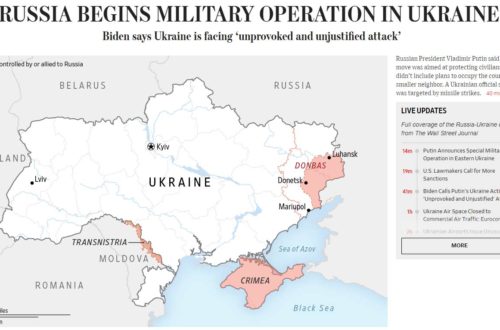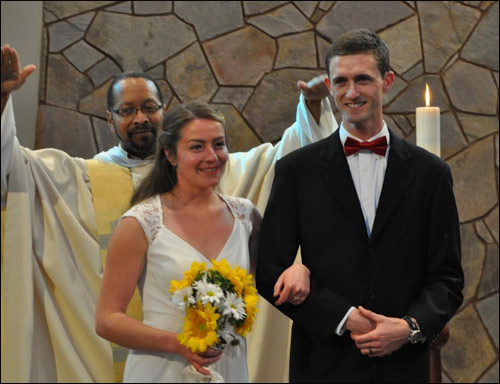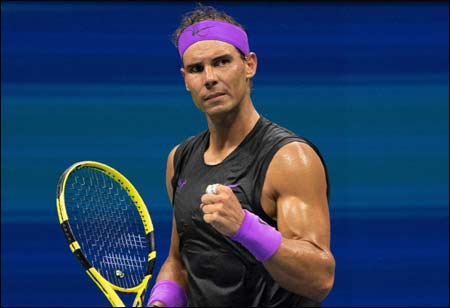
Rafael Nadal
I did not have a good feeling about this tennis match.
We were playing a men’s 4.5 USTA doubles league match against Ojai and they were always a solid squad. The competition would consist of three lines of doubles teams, and whoever won at least two out of the three is the winner. They had “stacked” their lineup, putting their weakest team on line one and their strongest on line three. Predictably, they won on line three and got crushed on line one. I knew I had been “out-captained” when they stacked their lineup. That did not feel good. The score was tied 1-1 and it was coming down to line #2 where I, our team’s captain, was playing. Whoever won this match would win the entire thing.
Pressure.
I did not feel confident. My partner Vikrum and I were playing doubles against a quality team of Danny and Jeff. They were solid players. I had never beaten Jeff before. And I had managed to hold my serve for my first two service games, but they had gone on and on and on. Deuce to add in to deuce to add out again and again. I was doing all the serving. I was serve and volleying again and again. I was exhausted by the time we were serving for the set at 5-4. The match on line #1 was already over by that time! Then we ignominiously dropped serve and went on to lose the tiebreaker.
Ouch.
Worst of all, my right elbow was killing me. I had been struggling with “golfer’s elbow” and was wearing an elbow brace, but all the pronating from serving so much in that first set exacerbated the problem. Then on one awkward volley I felt a sharp pain. My forearm muscles were screaming and I had trouble holding my racquet tightly.
It did not look promising.
In pain and down a set, my body did not feel good. The same with my spirits.
And everyone had congregated around our court to watch and see who would prevail. We are playing in front of a rapt audience on the showcourt #1 in front of the clubhouse. I thought to myself that this challenge was one I normally would look forward to if my arm did not hurt and I was not already so tired.
I was not confident.
But I was too tired to afford to think much about it at the time. My partner and I just slogged through the second set doing the best we could. We fought on. We waited for our chances. They were bullying us on our serves. I struggled with my forearm pain in serving, and my partner had many double faults. We struggled.
We found ourselves down 6-5 at forty love with three match points against us. If we had lost any of those points we would have lost 7-6, 7-5. I locked eyes with my partner and we both knew it was now or never. But this is where the match changed. We battled back and won the next three points in a row. Then they double faulted and we had a break point. Then I did something I had not done the entire night: I lobbed my return over the player at the next. Since I had not yet done this, I caught him crossing the other direction to poach — leaning in the wrong direction. The ball went right by him as he moved away from my lob. The server desperately ran for the ball but just barely got a racquet on it. Man, how I enjoyed watching him run fruitlessly for that lob! Our point, our game. We had broken back. The score was now 6-6. The improbable had just happened. Now for the second set tiebreaker.
My forearm was still killing me. I knew we still had a long way to go, but I thought that it would make an amazing story to win such a match. The odds were still against it. I was exhausted, but now with the finish line in sight I started to psych myself up. “Just a few more minutes of maximum intensity,” I told myself. “Then it will be over.” Physically and emotionally, it had already been a long match.
Recreational players like myself cannot learn much from watching professional tennis players, in my opinion. Companies like Babolat or Wilson produce tennis racquets painted the same color at the racquets used by Novak Djokovic or Roger Federer, and people buy these racquets thinking that they will play like those players. It is false advertising. The professionals are so much faster, stronger, and better in their technique that they are almost playing another sport, in my opinion. You can’t learn much from watching them hit the tennis ball. You certainly won’t play better using a racquet with the same paint job as Roger Federer. But you can learn much from watching how top professional tour players deal mentally with setbacks, and how they stay cool under pressure in the big moments. You can’t control if the other player is just better at tennis than you are. But you can control your own mental state and stay as sharp and competitive as possible. That is entirely within your power. You can control that.
I sometimes marvel at how some players under extreme competitive pressure lose control of their emotions, and they almost always play worse — often much worse. Younger players often lose control in this way. More experienced players learn to control their emotions. And professionals like Djokovic and Federer almost never lose it on the court, even under extreme duress.
In climactic moments of tennis competition my role model has always been Rafael Nadal. The “Spanish Bull” will fight for every point like the fierce competitor that he is, and he hops around the court exuding positive vibes, even if he is not really feeling it. So I started running onto the court between side changes during these tiebreakers, and hopping a bit before serving or returning serve. “Vamos!” one of my teammates yelled in encouragement from the sidelines. “Exactly!” I thought to myself. I could see my teammates thinking the same thing I was thinking — the same thing my opponents were thinking: “Can Vikum and Rich really pull this comeback off?”
We won the second set tiebreaker. The score now was 6-7, 7-6.
Now for a deciding super tiebreaker. This is a 10 point tiebreaker, not the usual 7 points. In practice, this means one has more time to climb out from a deficit. A ten point super tiebreaker can last a long time. It can be like a mini-set. But still every point counts and the pressure is on. Now is the time to raise your level.
They won the first point of the super tiebreaker. We fought back. The subtle difference between the two teams was that we were going for our shots and playing with enthusiasm, and the other team not as much. This late in a long exhausting match all the finesse is gone — the finer points of tennis are moot. It is like two boxers exchanging blows late in the fifteenth round — just slugging away at each other with whatever strength remains. Competition at this stage is all about nerves and mental toughness. Focusing 100% and taking clear, high percentage shots with a margin of error but still going for it. That last part is important. In such a situation, playing “to win” is what you want — not playing “not to lose.” A tinge of timidity crept into one of the players on the other side, and he made a few crucial errors. He tightened up.
This was the moment of truth. In changing sides during one turnover I drank some beer from a teammates cup, and poured the rest on my pain wracked forearm. But by then the extreme fatigue I felt did not matter, nor did that injury. The finish line was in sight, and if I were not physically 100% it did not matter. I did not have to play a whole other set of tennis. All I had to do was win a few more points. I could do that. Or so I told myself.
I started talking to my old dead friend Chris Prewitt in my head. I said his name out loud and looked up at the stars. “Please help me win this match, Chris!” I knew I always have my card with him and my mom on it in my tennis bag. In a third set super tiebreaker my guardian angels are always with me. During the points I am all business. But there are times during switch-overs where I can commune with my ghosts and derive strength from them. “Stay with me, mom!” I looked upwards. I started talking out loud to my mom and Chris under my breath between points.
Sometimes I say their names in my head. “Prewitt.” “Mom.” “Prewitt.” “Mom.” Just saying their names invokes their aid, I hope. Or if not, just saying their names calms me down. It centers me. It helps me to locate “True North.” In moments of crisis, like at the end of this match, I say their names almost unconsciously to myself.
If I was hopping around like Rafa and “vamos-ing” on the court, I was more “faking it until you make it” than being totally honest about how I felt. But experience has taught me that you can jack yourself up with adrenaline to get the confidence to make that final push to victory. You can “will” yourself to a win. And if Vikrum and I were going to go down to defeat, we would go down fighting. We would not creep away in cowardice. We would swing freely and aggressively at the moment of truth. We might lose, but we wouldn’t be beaten. I wasn’t afraid of losing. I was ready to lose. But I would go down swinging. No feckless shots into the bottom of the net. No tightening up. I would play with courage.
And that was the difference, I think. We had two match points at 9-7. The first point I served and Vikrum volleyed a return of serve that was going out — the ball had a lot of pace, and it was too hot for him to handle. On the second match point, Vikrum volleyed a high backhand awkwardly, and our opponent hit the slow moving ball right by him. Our match points were gone. A disappointing moment, but we had had many such moments in this seesaw match. We did not panic. We did not lose our cool.
Then we won the next two points. In the heat of the battle it all seems blurry to me now, but I remember hitting a backhand slice shot on the final point that bounced low at my opponent’s feat. It would be a hard shot for anyone to pick up. He hit it into the bottom of the net.
Point, set, match. 6-7, 7-6, (11-9). We beat Ojai 2-1.
This is why I play competitive sports. The feeling of butterflies in my stomach before a match. The opportunity to compete and thereby play my best tennis. To rise to the occasion. To display grace under pressure. To win. Or to lose. But to be fine either way as long as I gave it my all.
Billy Jean King claimed, “Pressure is a privilege.” How true!
This is the payoff. It is the point.
Thank you, Chris.
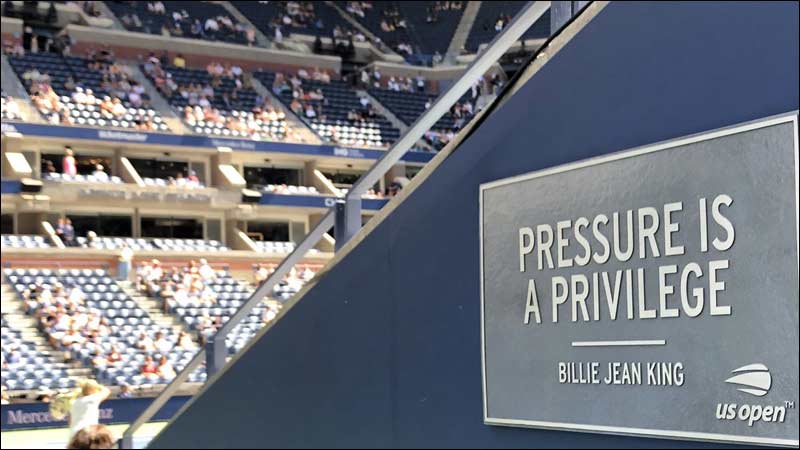
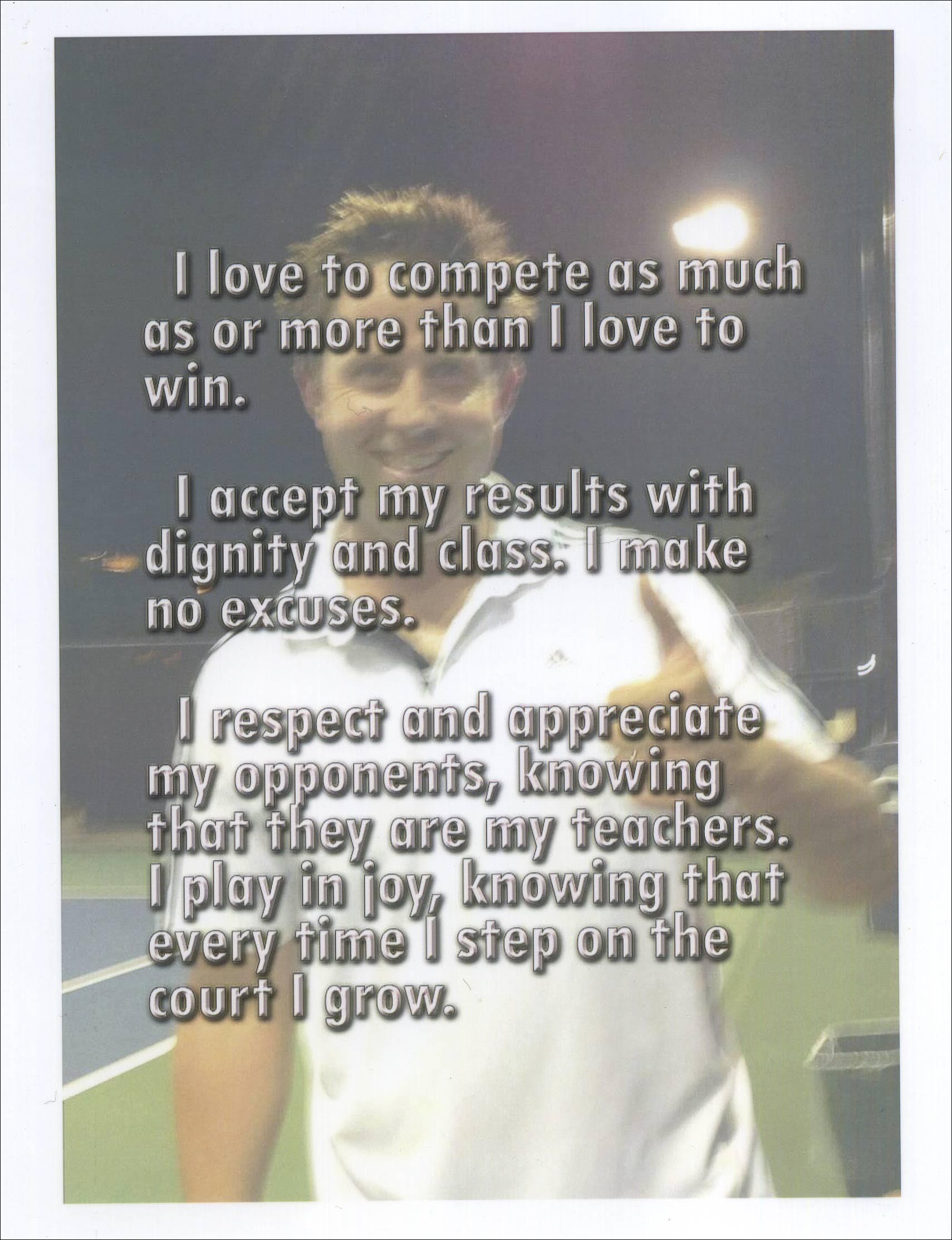
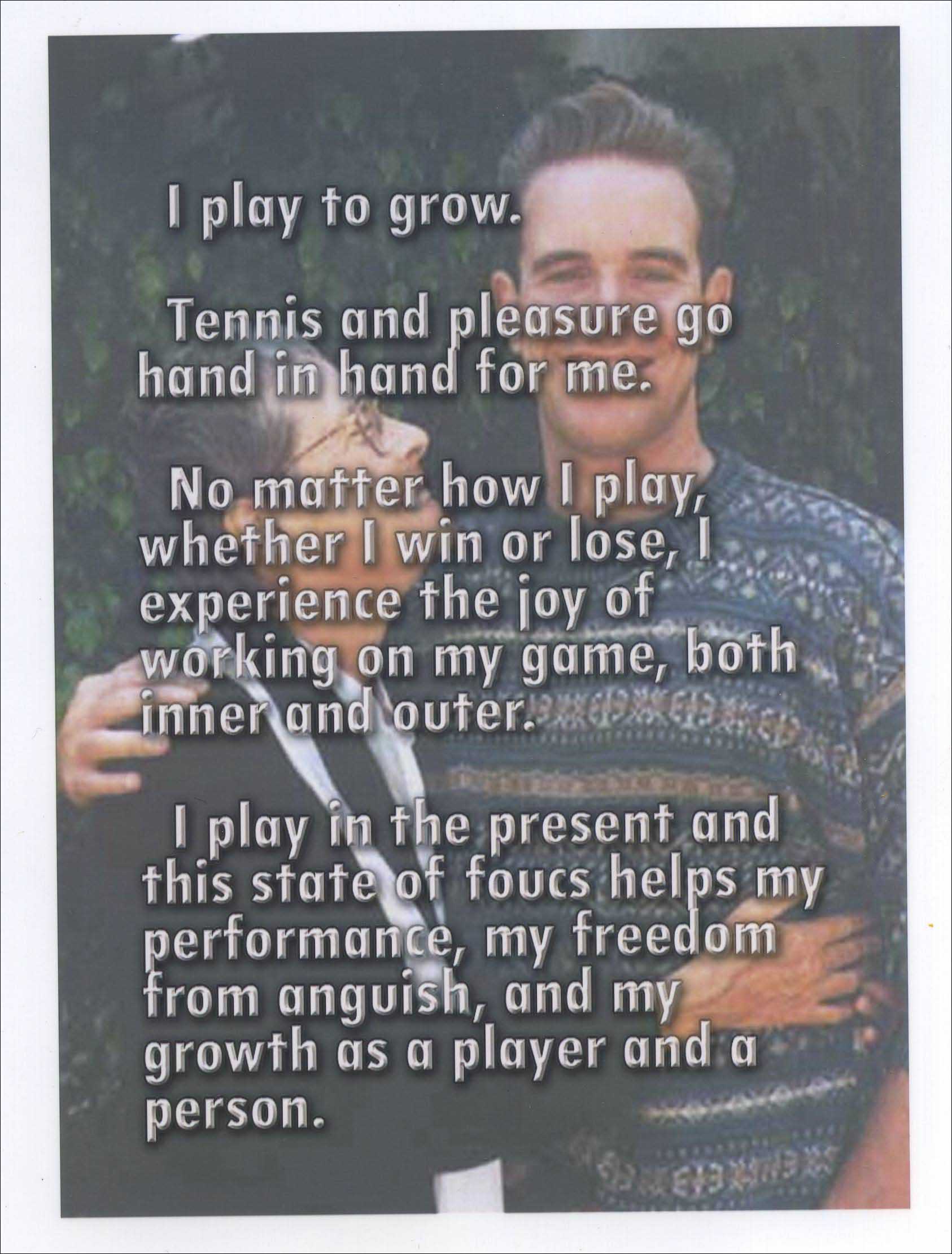
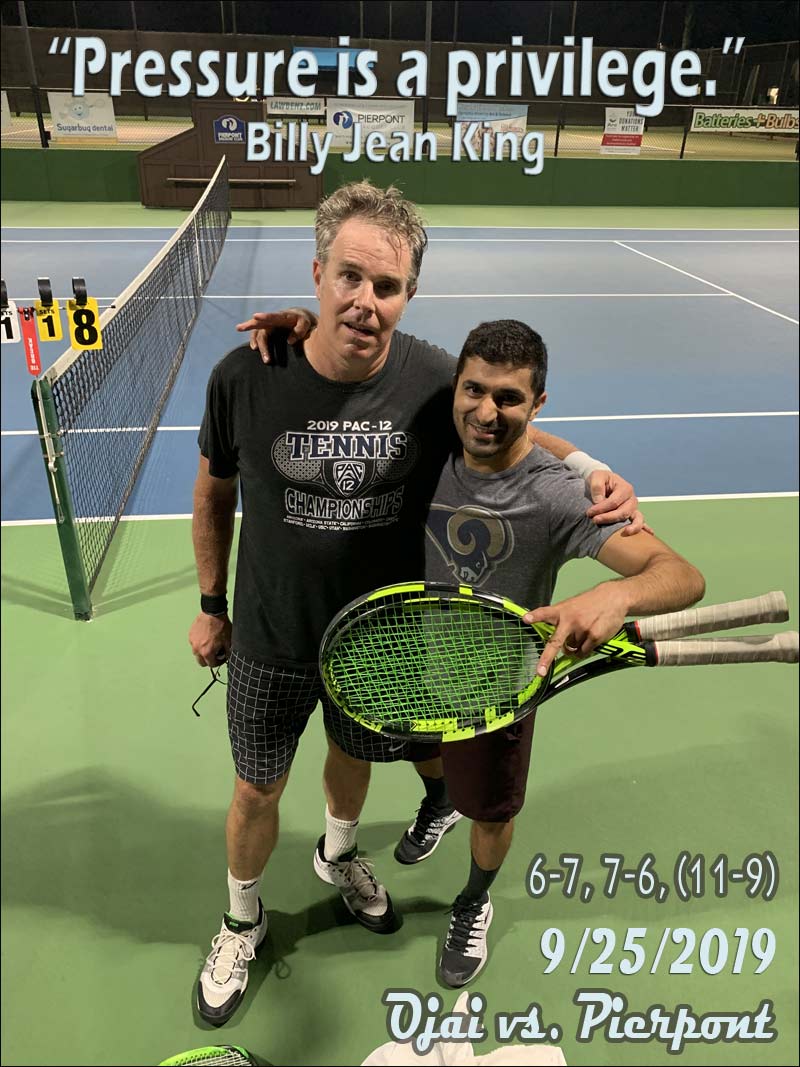
P.S. Later this same season, I lost two supertiebreakers which were as painful to lose as this one was pleasurable to win. Such is sports: you take the good with bad, the thick with the thin.




